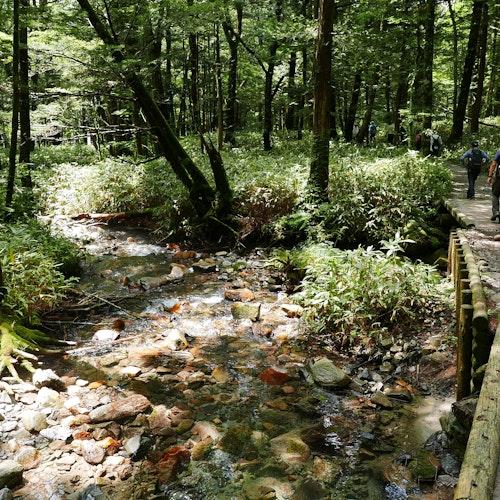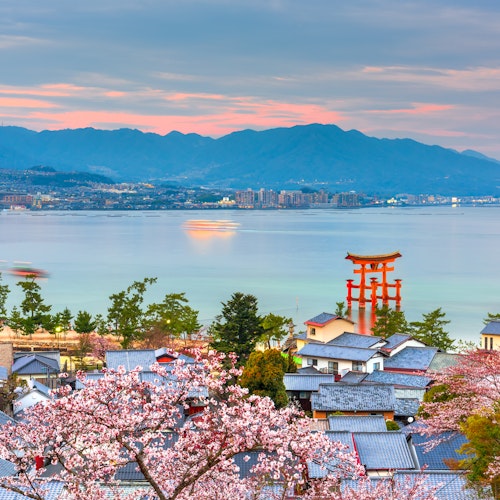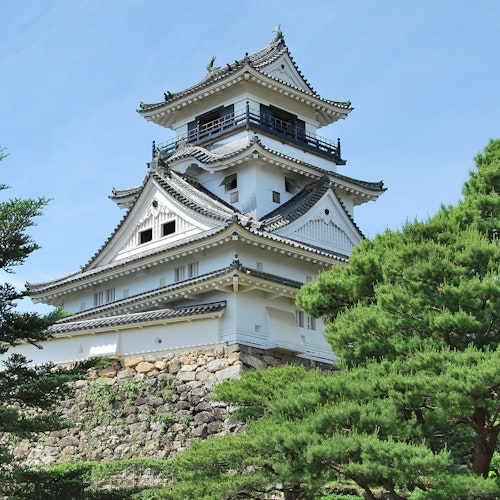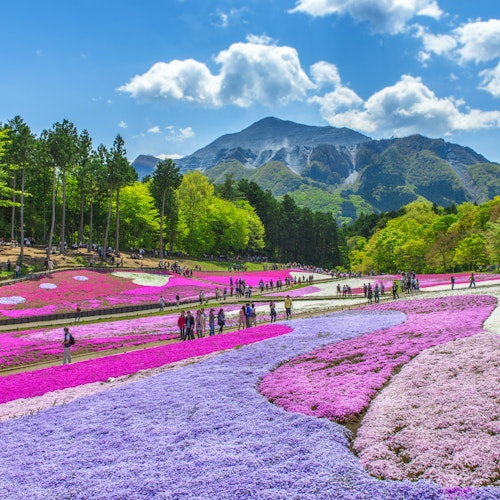Top 8 Best Areas to Stay in Tokyo: A Traveler’s Guide

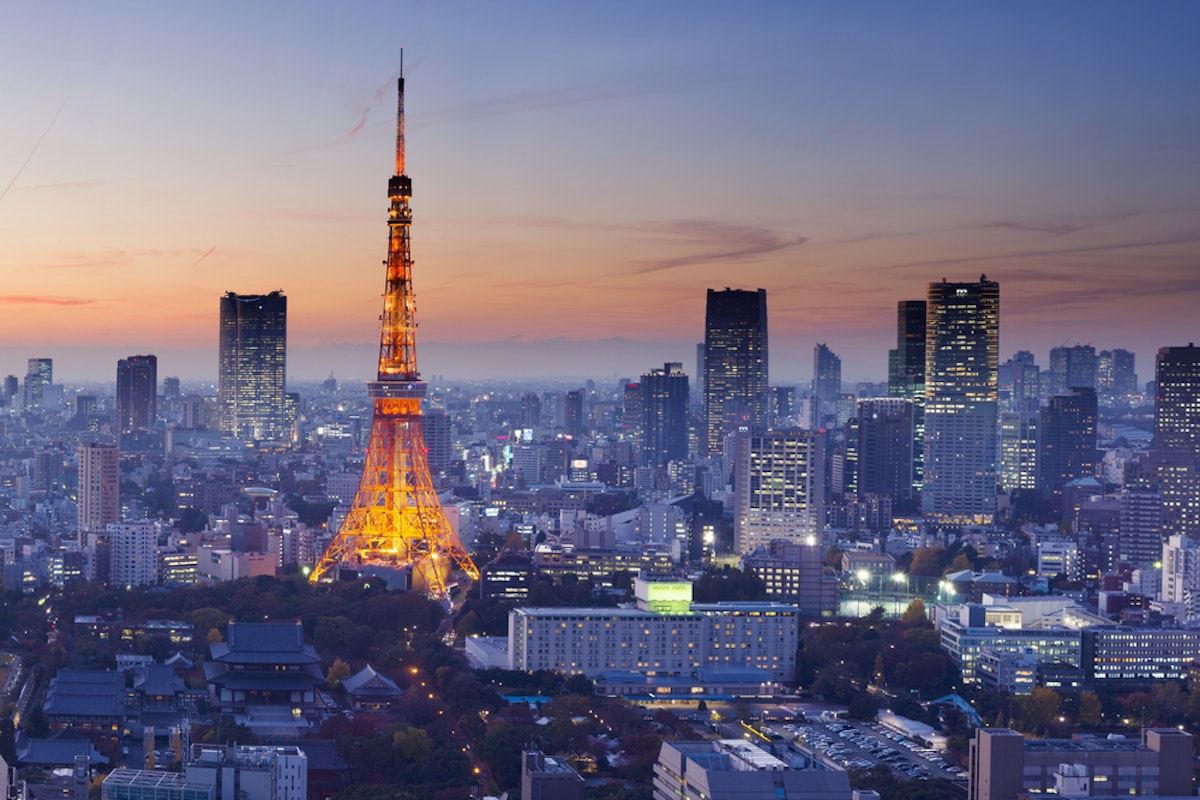
Tokyo, the vibrant capital of Japan, is a huge city that seamlessly blends the ultramodern with the traditional. It's a metropolis bustling with over 14 million residents, making it not only one of the most populated cities in the world but also one of the most diverse and dynamic.
From towering skyscrapers, high-tech subways, and futuristic technology to historic temples, serene gardens, and quaint tea houses, Tokyo offers an awe-inspiring juxtaposition that enthralls every visitor. Choosing where to stay in this expansive city can be challenging, especially for first-time visitors.
Staying near a metro station is crucial for easy navigation and enhances convenience for exploring the city's various districts and attractions. Each district in Tokyo presents its unique charm and attractions, making it more than just a place to rest at night but also an integral part of your Tokyo experience.
This guide will help you navigate the top 8 best areas to stay in Tokyo, considering accessibility, tourist attractions, local cuisine, shopping, and nightlife. Whether you're a solo backpacker, a family on vacation, or a couple on a romantic getaway, a perfect spot in Tokyo is waiting for you.
Best Neighbourhood Areas to Stay in Tokyo for Tourists
Shibuya
Shibuya is a captivating ward in Tokyo, Japan, celebrated as a bustling commercial and financial center. Two busiest railway stations globally serve Shibuya, making it a transport hub that connects the ward to other parts of Tokyo and beyond.
This vibrant district is a melting pot of modern Japanese culture, renowned for its shopping districts, dynamic nightlife, and people-watching opportunities.
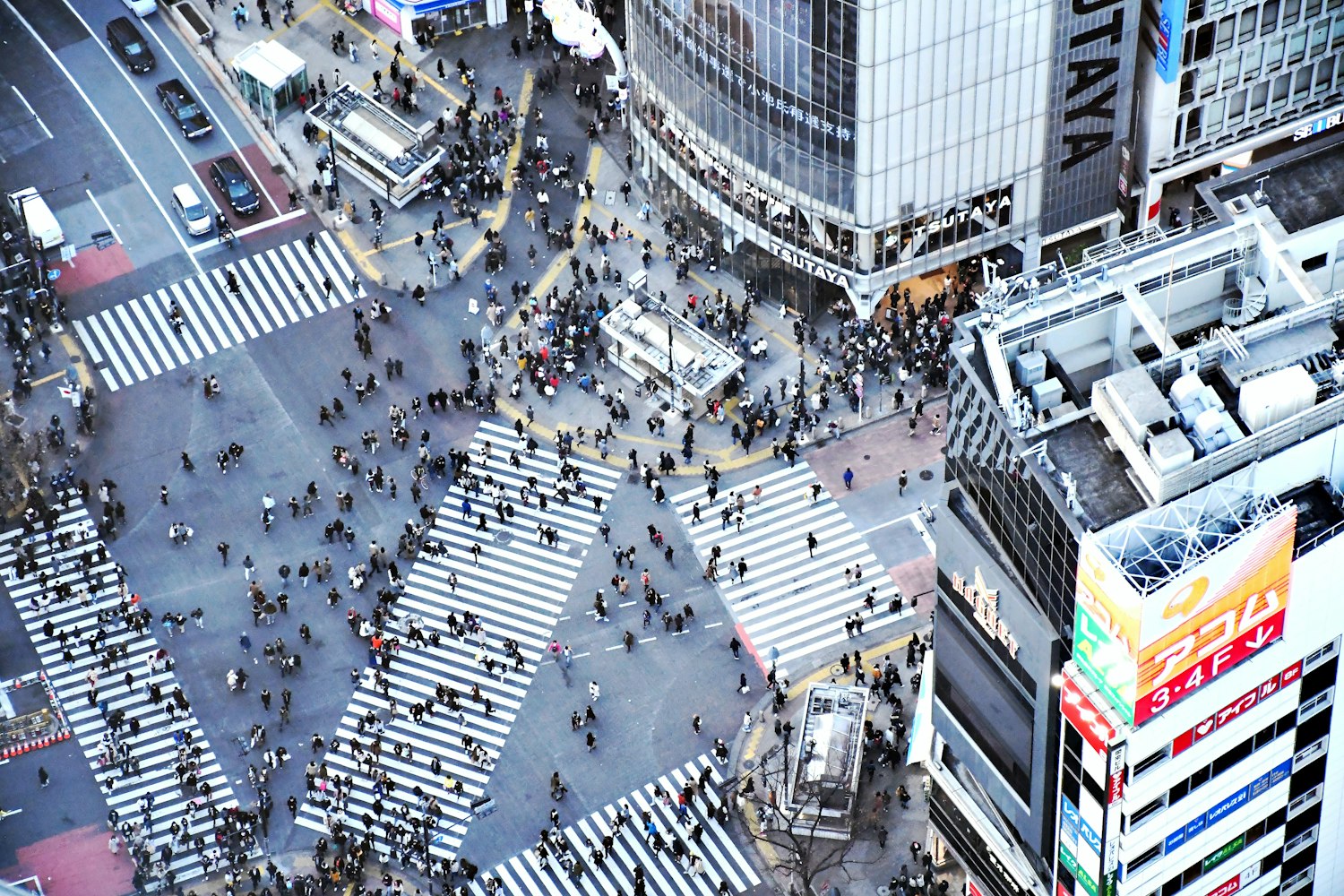
Accommodation Options in Shibuya
Shibuya offers a range of accommodation options to suit various budgets and preferences. Luxury hotels offer high-end amenities and excellent service, while budget-friendly hostels and guesthouses provide comfortable stays for travelers on a budget.
Many hotels in Shibuya are conveniently situated close to Shibuya Station, one of the busiest railway hubs in the world. This proximity to public transport makes it easy for visitors to explore other parts of Tokyo.
Some hotels in Shibuya offer themed rooms, such as manga or anime-inspired décor, for those seeking a unique experience. These quirky features embody the district's youthful energy and modern pop culture influence.
Before finalizing your accommodation, check online reviews and ratings for insights from past guests.
Top Attractions in Shibuya
Shibuya is a bustling district in Tokyo known for its vibrant atmosphere and numerous attractions. Here are some of the top sites that you shouldn't miss:
Shibuya Crossing: Known as "The Scramble," Shibuya Crossing is one of the world's most bustling pedestrian intersections. Witnessing the orchestrated chaos of hundreds of people crossing simultaneously is a unique spectacle.
Hachiko Statue: Situated close to Shibuya Station, this bronze statue honors Hachiko, the faithful dog who waited daily at the station for nearly ten years after his owner's passing. It's a popular meeting point and a symbol of loyalty.
Shibuya Sky: This observation deck on the rooftop of Shibuya Scramble Square offers panoramic views of Tokyo. At sunset, the city lights twinkle, making the view incredibly stunning.

Immerse yourself in Shibuya's captivating after-dark culture.
Meiji Shrine: A short walk from Shibuya's hustle and bustle, this Shinto shrine dedicated to Emperor Meiji and Empress Shoken is surrounded by a tranquil forest. It offers a peaceful escape from the city's buzz.
Takeshita Street: Although technically located near Harajuku, this vibrant shopping street is a must-visit. Known for its quirky shops and trendy boutiques, it's the heart of Japan's kawaii (cute) culture.
Dining and Shopping Experiences
Shibuya is a food lover's paradise. The district offers various dining options, from high-end sushi restaurants to casual ramen shops and izakayas (Japanese-style pubs).
Shibuya Eatery, for instance, serves up delicious ramen, kushiyaki, and sushi. Shopping in Shibuya is an adventure in itself.
The district is known for its fashionable boutiques and large department stores. Shibuya has everything you need if you're looking for the latest trends, electronics, or unique souvenirs.
For a one-of-a-kind shopping experience, visit the Shibuya 109 building, a multi-story shopping complex known for its trendy clothing and accessories.
Shinjuku
Shinjuku, one of Tokyo's 23 city wards, is an iconic business and entertainment hub. Post-World War II, it evolved as a significant secondary center, rivaling even the original city centers in Marunouchi and Ginza.
Shinjuku is also conveniently located near the Tokyo Imperial Palace, making it an excellent choice for visitors looking to explore prime locations in Tokyo. A microcosm of Tokyo itself, Shinjuku boasts towering skyscrapers, neon lights, shopping malls, bars, clubs, and traditional yakitori stalls.
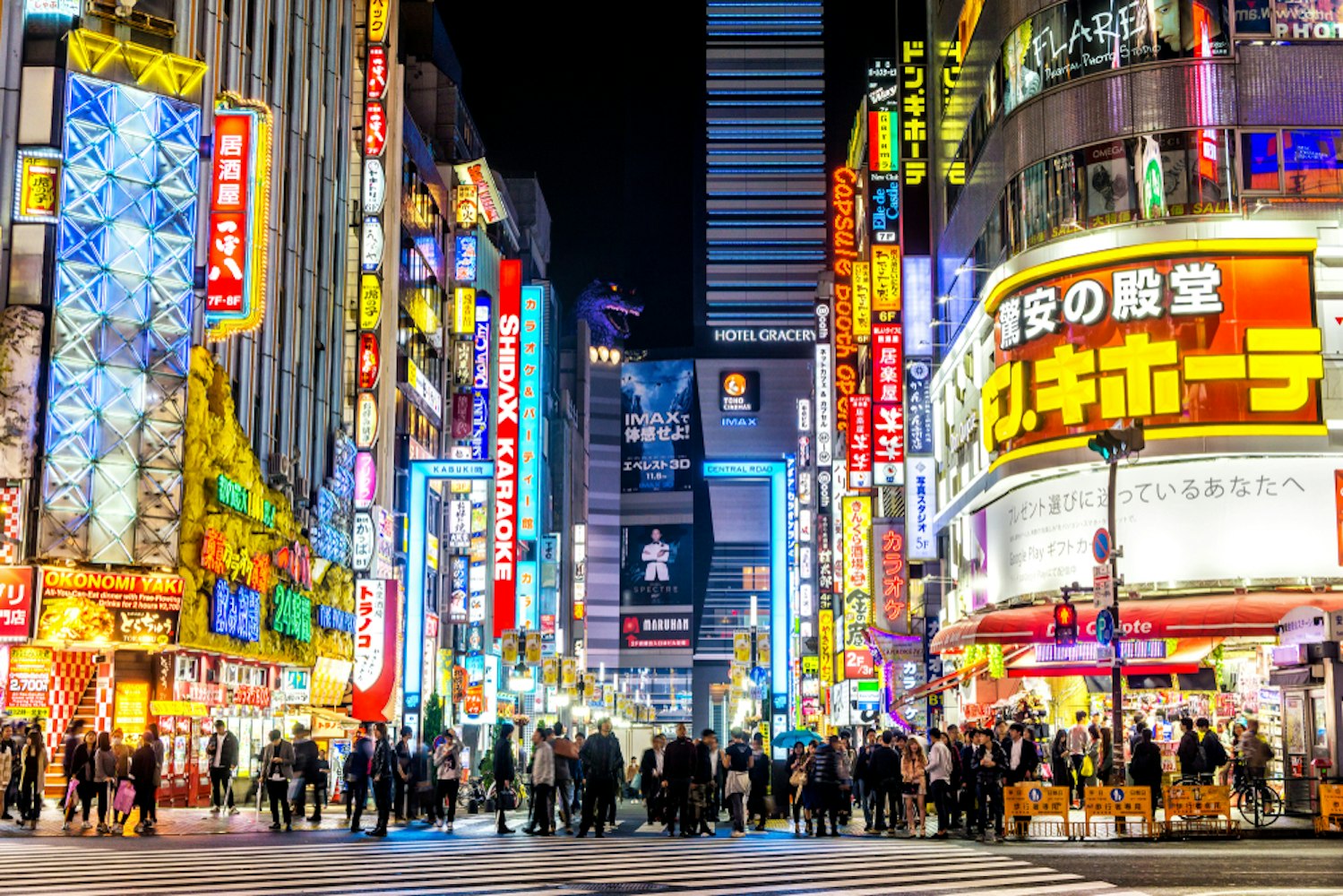
Best Hotels and Hostels in Shinjuku
Shinjuku offers a variety of accommodation options to cater to the diverse needs of its visitors. Luxury hotels provide exquisite service and amenities, while budget-friendly hostels offer a comfortable stay with a more communal atmosphere.
Many of these accommodations are conveniently located near Shinjuku Station, the busiest train station in the world, providing easy access to other parts of Tokyo. Some notable luxury hotels include the Park Hyatt Tokyo, known for its stunning views and world-class service, and the Keio Plaza Hotel, which offers traditional Japanese hospitality.
For budget travelers, Kadoya Hotel provides affordable rates without compromising comfort, while Imano Tokyo Hostel is a popular choice for backpackers seeking a social atmosphere.
Must-Visit Spots in Shinjuku
Shinjuku, Tokyo's bustling business and entertainment district, has numerous attractions. Shinjuku is well-connected by the Tokyo Loop Line, making accessing other popular neighborhoods and attractions easy. Here are some must-visit spots:
Shinjuku Gyoen National Garden: This large park is one of Tokyo's most beautiful green spaces. It boasts English, French, and traditional Japanese gardens. It's trendy during cherry blossom season.
Tokyo Metropolitan Government Building: Known as Tocho for short, this building offers free observation decks on its 45th floor, providing panoramic views of the city and beyond.
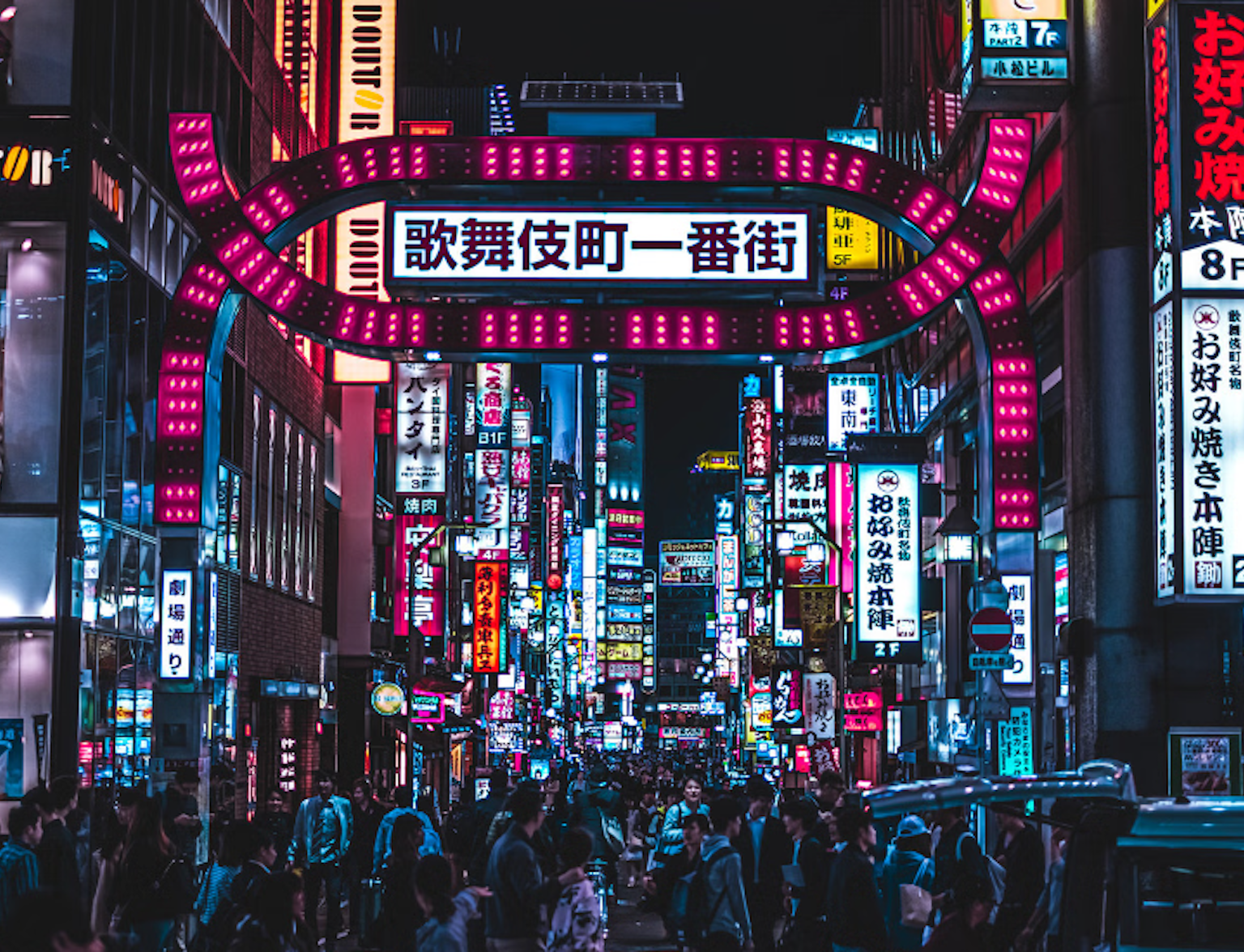
Dive into authentic Japanese pub foods, toast with traditional drinks, and capture unforgettable moments.
Kabukicho: Japan's largest red-light district has shops, restaurants, nightclubs and more. It's also home to the unique Robot Restaurant.
Golden Gai: This area is famous for its narrow alleys containing hundreds of tiny bars and eateries. It offers a unique glimpse into Tokyo's past.
Omoide Yokocho (Memory Lane): Also known as "Piss Alley," this narrow lane is filled with tiny food stalls serving up tasty yakitori (grilled chicken skewers) and other Japanese delicacies.
Nightlife and Entertainment in Shinjuku
Shinjuku is famous for its vibrant nightlife and entertainment options. The district's Kabukicho area is Japan's largest red-light district, offering an array of bars, restaurants, and nightclubs.
For a more unique experience, visitors can check out Robot Restaurant, known for its eccentric robot-themed shows. Golden Gai, a narrow alley lined with hundreds of tiny bars, offers a glimpse into Tokyo's past and a chance to mingle with locals and fellow travelers.
Meanwhile, Omoide Yokocho (Memory Lane), nicknamed "Piss Alley," is famous for its small yakitori stalls serving grilled chicken skewers and other Japanese delicacies.
Asakusa
Asakusa, a district in the eastern part of Tokyo, is a captivating blend of traditional and modern Japan. It's renowned for its historic temples, charming shopping streets, and authentic ryokans.
Asakusa offers a unique glimpse into Tokyo's rich history and culture, making it a must-visit for anyone seeking an immersive Japanese experience.
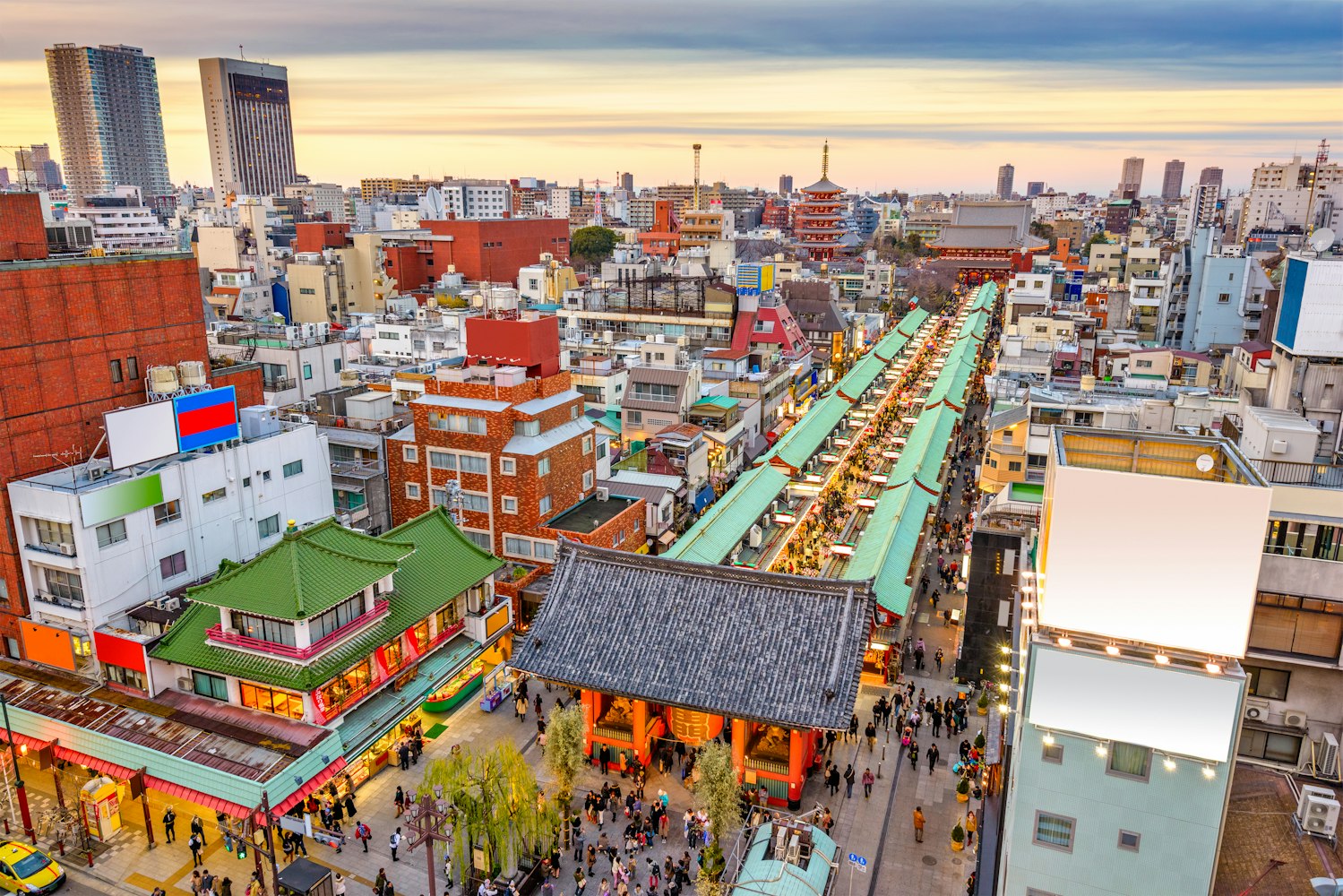
Traditional Ryokans and Modern Stays in Asakusa
Asakusa boasts a range of accommodations, from traditional ryokans to modern hotels. The district is mainly known for its ryokans, Japanese-style inns offering a unique lodging experience with tatami-matted rooms, communal baths, and exquisite Japanese cuisine.
Here are some highly-rated ryokans in Asakusa:
Ryokan Asakusa Mikawaya Honten: This traditional ryokan is conveniently located within walking distance of the Asakusa subway station and Senso-ji Temple.
Japanese Traditional House: Highly rated by couples, this ryokan provides a cozy and traditional stay.
Ryokan Nakadaya: Known for its excellent service and comfortable accommodations, Ryokan Nakadaya is another popular choice.
Cyashitsu Ryokan Asakusa: Situated in the heart of Asakusa, this stunning ryokan transports you back to the Edo period.
Cultural Landmarks and Temples
Asakusa has numerous cultural landmarks and temples, offering many historical and cultural experiences.
Senso-ji Temple: Asakusa's main attraction, this ancient Buddhist temple is Tokyo's oldest and one of its most significant.
Asakusa Shrine: Located within the Senso-ji Temple complex, this Shinto shrine is dedicated to the three men who founded Senso-ji.
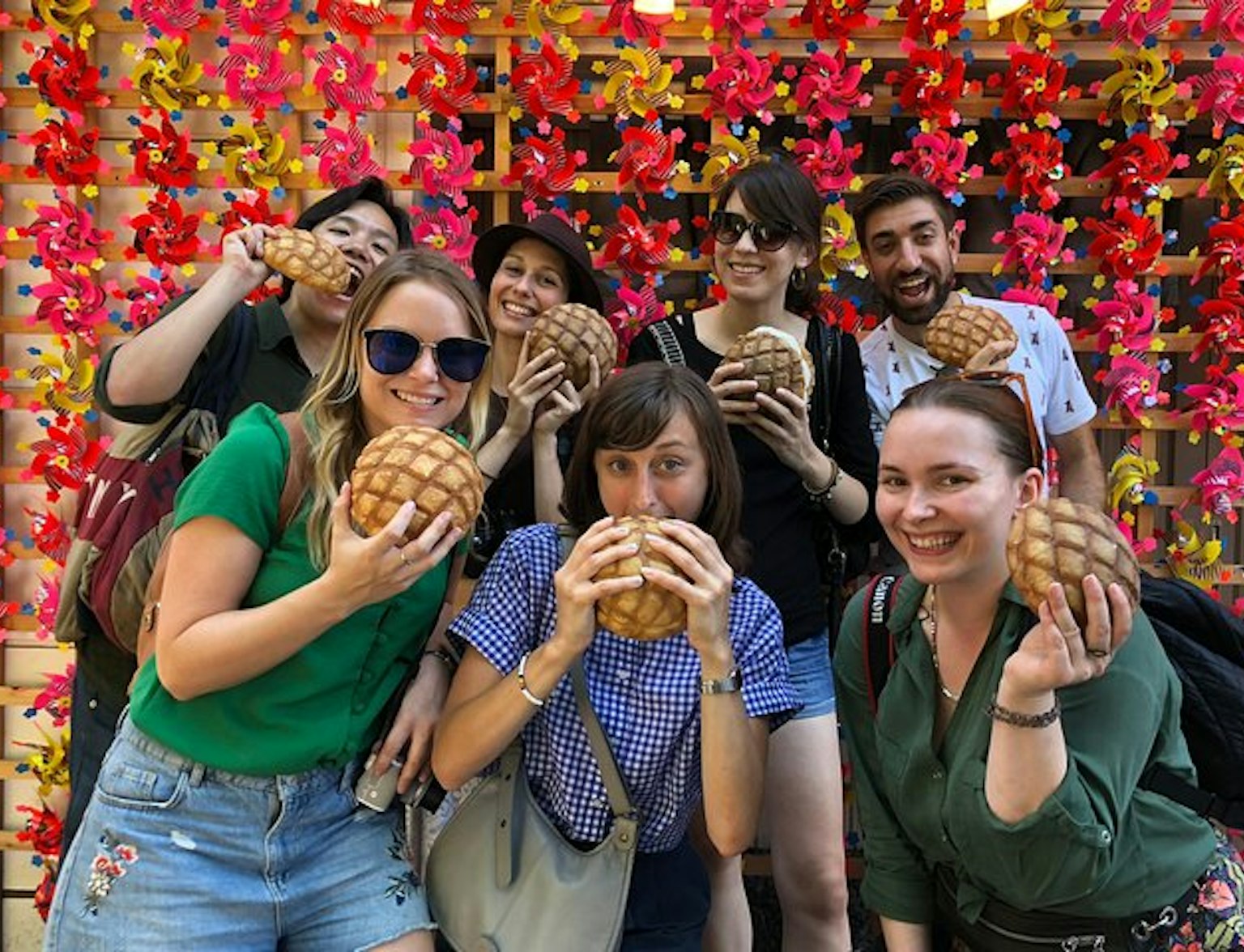
Immerse yourself in Japanese culture with sweet treats, hidden gems, and a local market experience.
Nakamise Shopping Street: This bustling street leads up to Senso-ji Temple, lined with shops selling traditional snacks and souvenirs.
Kaminarimon (Thunder Gate): The outer entrance gate to Senso-ji Temple, Kaminarimon, symbolizes Asakusa and the entire city of Tokyo.
Local Food and Markets
Asakusa is renowned for its local food, with various restaurants and food stalls serving authentic Japanese cuisine. Particularly notable is Asakusa Imahan, a restaurant famed for its Sukiyaki and Shabu Shabu, which are traditional Japanese beef dishes.
For those who enjoy street food, Asakusa Menchi is a must-visit spot known for its menchi-katsu, a delicious breaded and deep-fried ground meat patty. Apart from its food offerings, Asakusa is also a shopping haven with several markets offering a variety of goods.
Kappabashi Kitchen Town is a unique shopping destination known for its kitchenware, restaurant supplies, and plastic food models, commonly seen in Japanese restaurant windows. For a more varied shopping experience, Don Quijote, a significant discount store in the area, offers everything from groceries and cosmetics to electronics and clothing.
Ginza
Ginza is a district in Tokyo that epitomizes luxury. It offers high-end shopping experiences and fine dining options.
The area is renowned for its wide boulevards and narrow lanes lined with exclusive boutiques, department stores, and restaurants. It's a popular upscale shopping area, housing internationally famous brands and providing something for every discerning shopper.
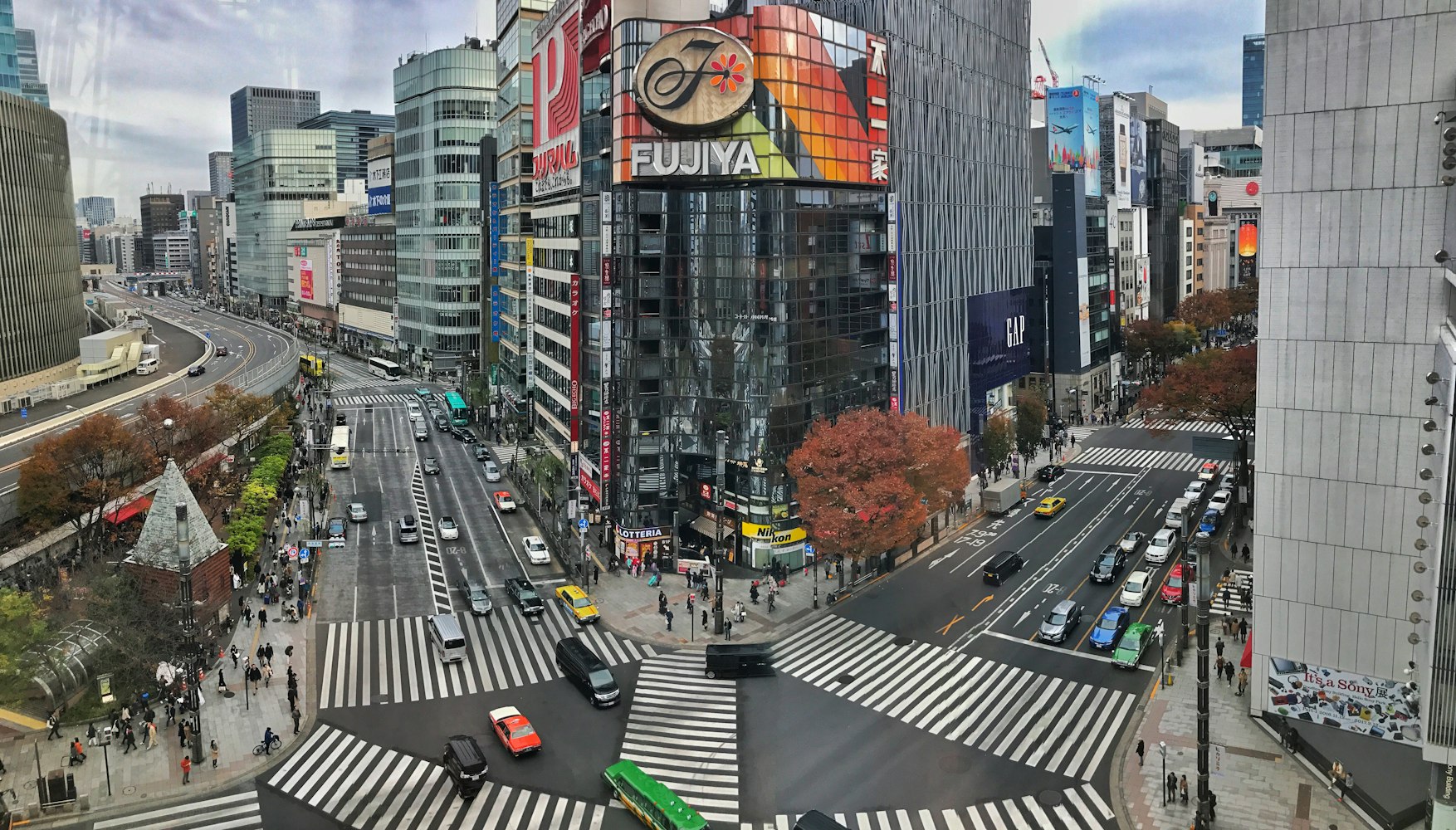
Premier Hotels in Ginza
Here are some of the top-notch hotels that offer supreme comfort, luxury, and easy access to the numerous shopping and dining options in the area:
The Peninsula Tokyo: This five-star hotel combines traditional Japanese aesthetics with modern comforts. It offers stunning city views, spacious rooms, and a 24-hour fitness center.
Hyatt Centric Ginza Tokyo: Situated on the fashionable Namiki-dori street, this hotel provides sleek and modern rooms, a fitness center, and a restaurant serving local and international cuisine.
Imperial Hotel Tokyo: A legendary hotel with a history dating back to 1890, it offers classic luxury with spacious rooms, multiple restaurants, and a wellness center.
Ginza Grand Hotel: Offering a blend of comfort and convenience, this hotel features cozy rooms and a French restaurant and is just a short walk from the famous Ginza shopping street.
High-End Shopping and Galleries
Ginza is synonymous with luxury shopping. The district boasts high-end boutiques and department stores that offer an array of upscale goods.
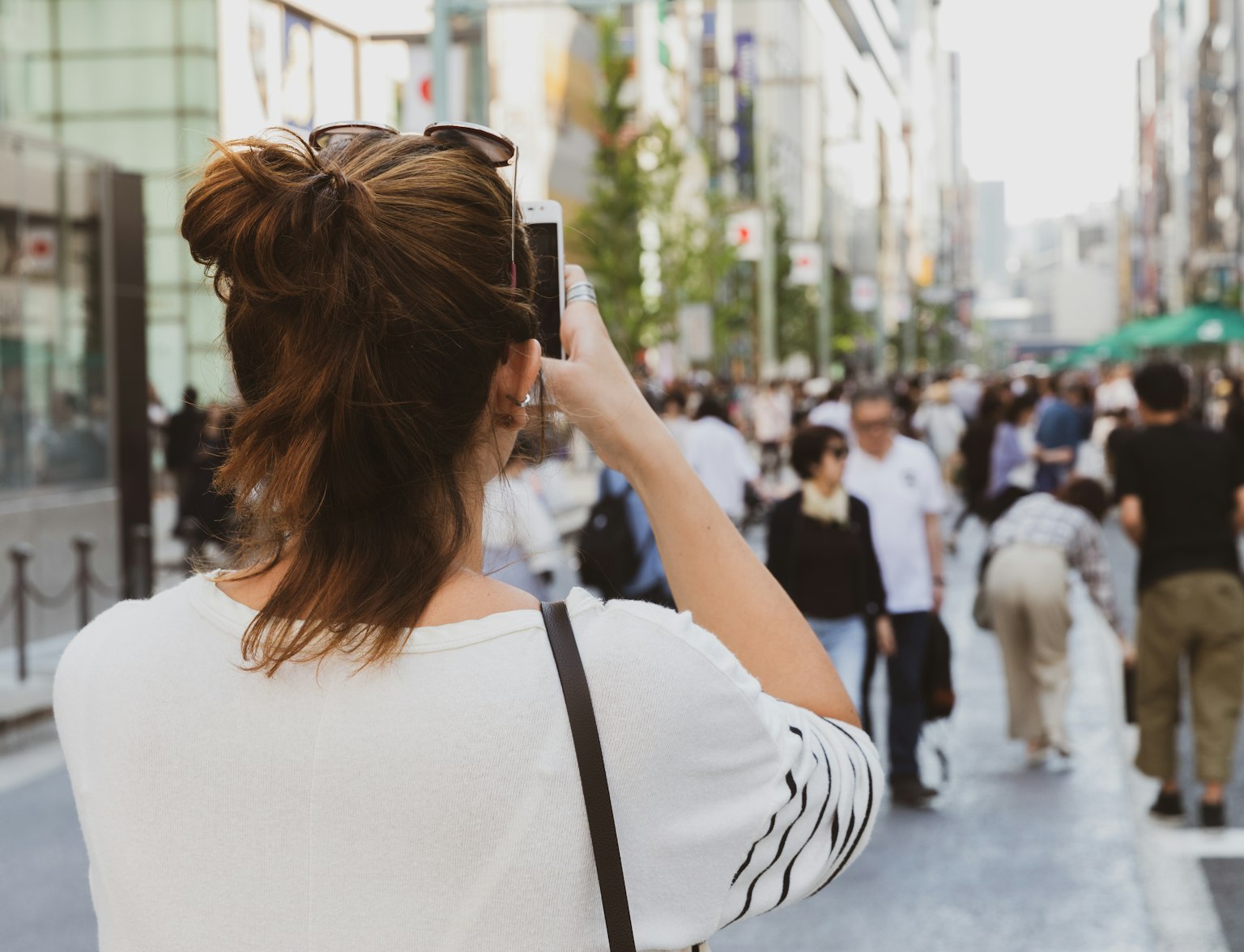
Delve into the elegance of Ginza, Tokyo's premier destination for upscale shopping, gourmet dining, and captivating entertainment.
One of the most notable shopping landmarks in the area is Ginza Wako, famous for watches, jewelry, porcelain, handbags, and upscale foreign goods. Apart from shopping, Ginza is also known for its galleries, which offer visitors a cultural experience.
Akihabara
Akihabara, also known as "Akiba," is a district in the Chiyoda ward of Tokyo, renowned worldwide as a mecca for anime and tech enthusiasts. This vibrant neighborhood has evolved from a central post-war black market electronics hub into an otaku cultural epicenter, hosting many electronic shops, anime and manga stores, video game arcades, and quirky-themed cafes.
Its streets buzz with energy, offering a fascinating blend of traditional Japanese and modern pop culture.
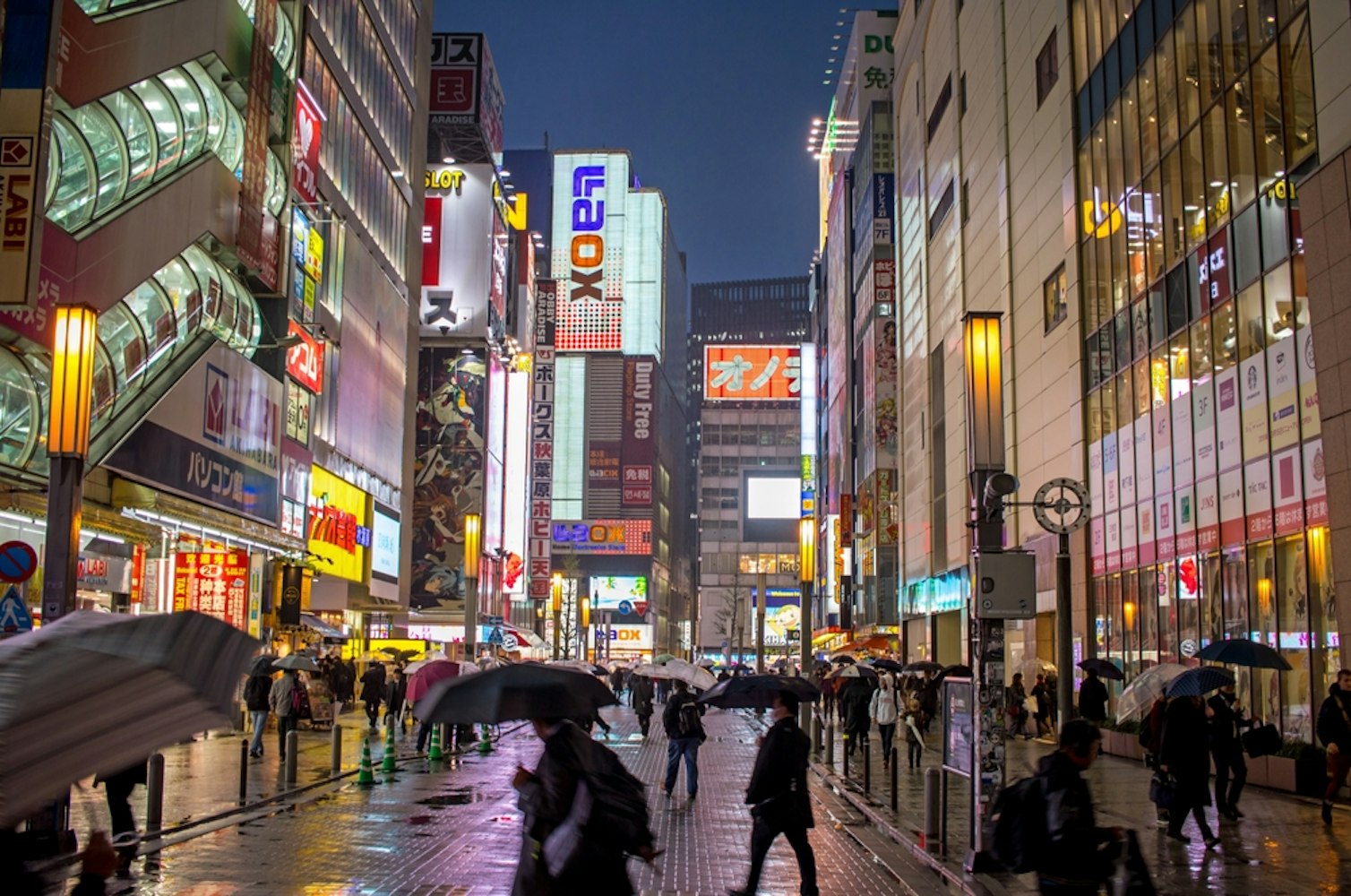
Accommodations Near Akihabara
Staying in Akihabara provides easy access to this unique cultural experience. The area boasts a variety of accommodations suited to different budgets and preferences.
From luxury hotels offering top-notch amenities to budget-friendly hostels and guesthouses that cater to backpackers and solo travelers, there's something for everyone. Being centrally located in Tokyo, staying in Akihabara also allows convenient access to other popular destinations within the city.
Many accommodations in Akihabara offer more than just a place to sleep. Some hotels incorporate the district's otaku culture into their services, offering anime-themed rooms or collaborating with popular anime and manga franchises for special events.
Exploring Anime and Electronic Shops
Akihabara is a paradise for anime and tech fans. The district has numerous multi-story electronic shops offering everything from the latest gadgets, computer parts, home appliances, and rare vintage electronics.
Yodobashi Akiba, one of the largest electronics stores in Japan, is a must-visit for tech enthusiasts.
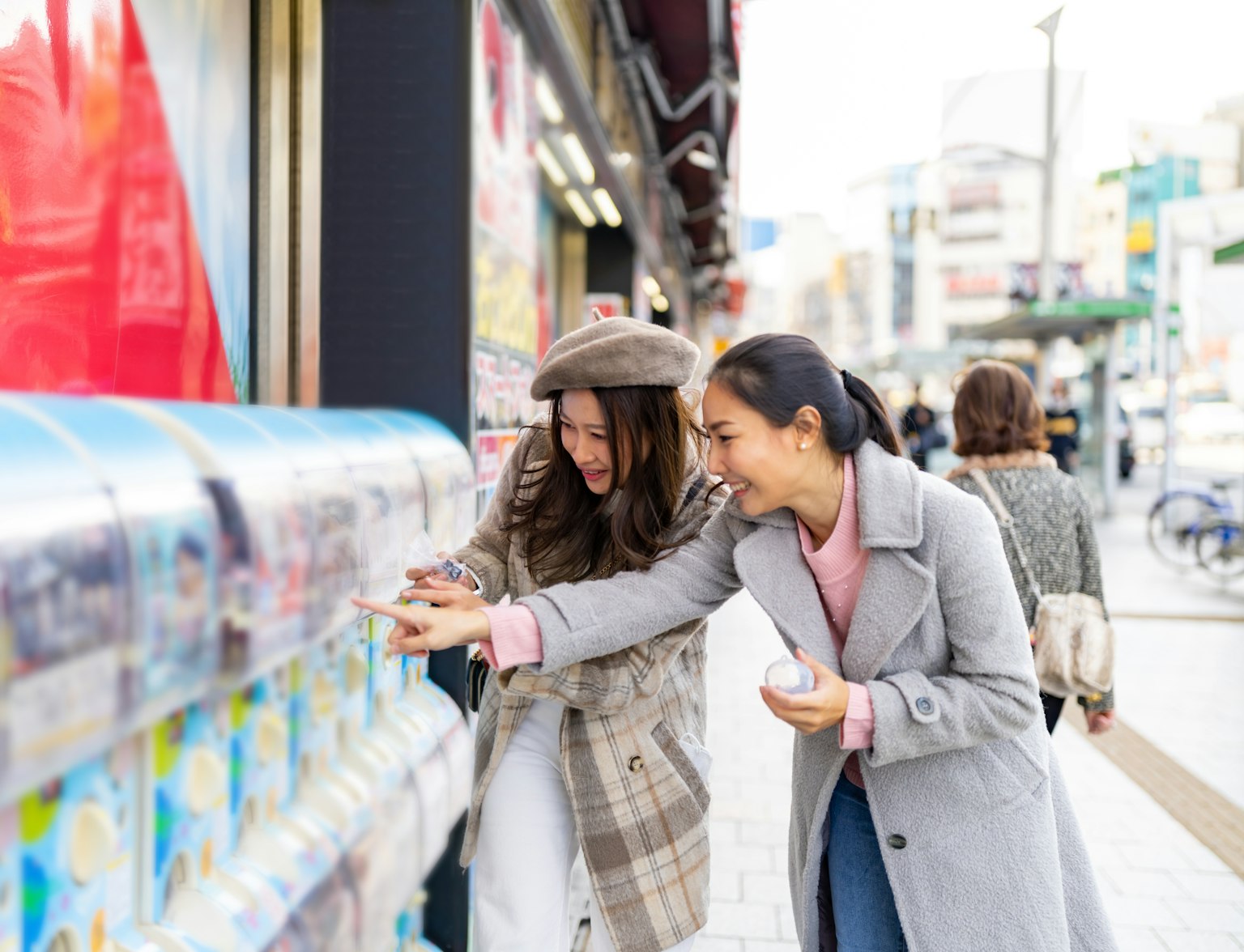
Engage in Cosplay, explore specialty stores, and embrace Japanese sub-culture.
For anime and manga fans, Akihabara is nothing short of a dreamland. Streets are lined with stores selling various anime and manga merchandise, including DVDs, figurines, collectibles, and more.
Mandarake is the location of Japan's largest second-hand anime and manga store. Shops specializing in doujinshi (self-published works), cosplay items, and other otaku goods are standard.
Themed Cafes and Entertainment
Akihabara is renowned for its themed cafés, especially maid cafés, where staff dressed as maids treat customers as "masters" or "mistresses." These cafes offer a unique dining experience beyond food, with live performances, games, and photo opportunities.
Other themed cafes include owl, cat, and even vampire-themed cafes. In addition to cafes, Akihabara offers various forms of entertainment.
There are numerous arcades where visitors can enjoy video games, claw machines, and purikura (photo sticker booths). For those interested in Japanese idol culture, the AKB48 Theater—home of the popular girl group AKB48—is in Akihabara.
The district also hosts various events related to anime and manga, such as launch events, autograph signings, and cosplay gatherings.
Harajuku
Harajuku, located in the Shibuya ward of Tokyo, is globally recognized as a hub of Japanese youth culture and fashion. Known for its vibrant street style, this bustling district has influenced global fashion trends for decades.
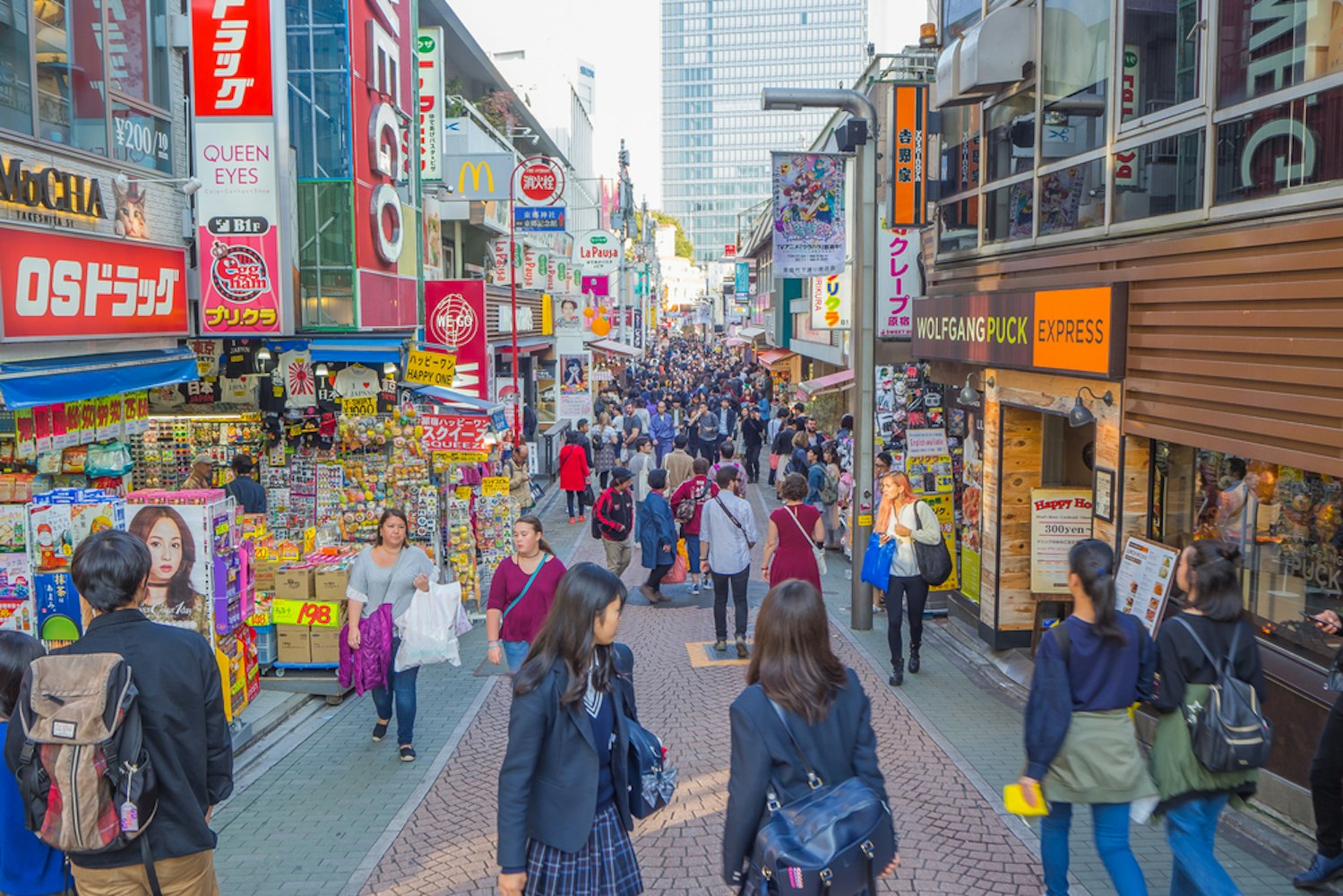
The area is packed with boutiques, trendy cafes, and vintage stores. It's also home to the famous Takeshita Street, a pedestrian shopping street lined with fashion boutiques, restaurants, and fast-food outlets selling crepes and other treats.
Where to Stay in Harajuku
Visitors to Harajuku have a range of accommodation options. The district offers a mix of luxury hotels, budget-friendly guesthouses, and hostels that cater to various needs and budgets.
Staying in Harajuku allows you to easily explore the iconic fashion streets and immerse yourself in the energetic youth culture. Many hotels in Harajuku reflect the district's stylish vibe, featuring chic interiors and top-notch services.
For budget travelers, numerous guesthouses and hostels provide affordable accommodation without compromising comfort or convenience.
Exploring Takeshita Street
Takeshita Street is the heart of Harajuku's fashion culture. This bustling pedestrian street is filled with shops selling trendy clothes, accessories, and unique items.
It's a paradise for fashion lovers, with various styles available, from gothic and punk to kawaii (cute) and lolita fashion. The street is also known for its vintage clothing stores, where you can find one-of-a-kind items.

Explore Harajuku and other spots on a ninja attire. A unique experience!
Exploring Takeshita Street is not just about shopping; it's also about experiencing the vibrant street culture. The street is often crowded with young people dressed in colorful and eccentric outfits, making it an excellent place for people-watching and photography.
You can try Harajuku crepes or rainbow cotton candy sold in various food stalls along the street.
Roppongi
Roppongi, located in the Minato ward of Tokyo, is known as a nightlife hub catering to locals and expatriates. This district boasts an array of nightclubs, bars, restaurants, and cultural attractions, making it a popular destination for those seeking entertainment and cultural experiences after sunset.
Roppongi's vibrant atmosphere and international appeal uniquely blend Japanese and global cultures.
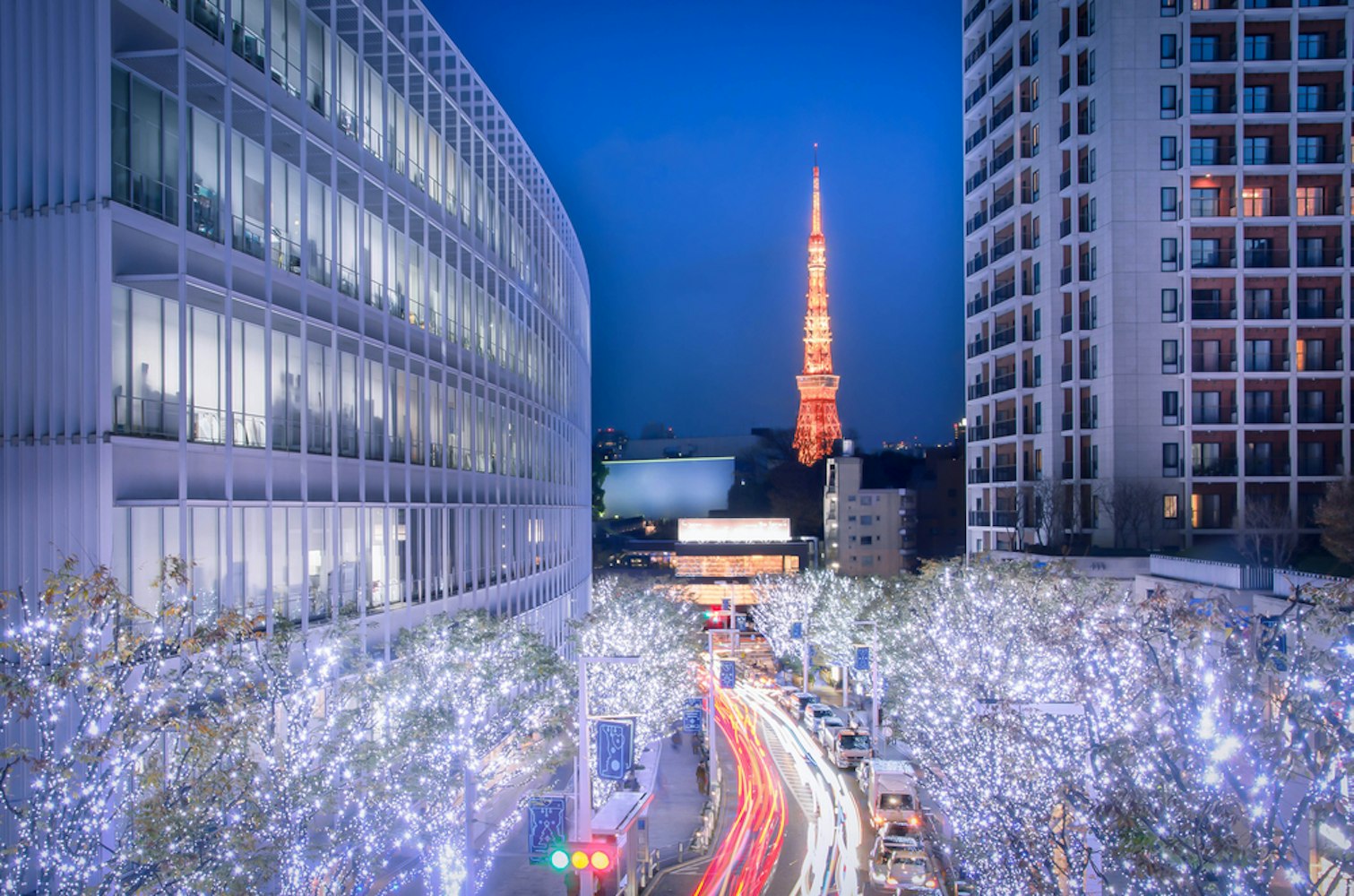
Accommodation Choices in Roppongi
Roppongi, a famous Tokyo district, offers various accommodation options for different needs and budgets. From luxury hotels to budget-friendly guesthouses, you can find the perfect place to stay while exploring Roppongi's vibrant nightlife and cultural attractions. Here are some of the choices:
Luxury Hotels: Roppongi boasts several high-end hotels for those who value comfort and luxury. These include The Ritz-Carlton, Grand Hyatt, and ANA InterContinental. They offer top-notch amenities like spas, dining restaurants, and panoramic city views.
Mid-range Hotels: Numerous mid-range hotels are available to balance cost and comfort. These establishments, such as the B Roppongi and the APA Hotel Roppongi Ekimae, provide comfortable rooms with essential amenities at a reasonable price.
Budget Accommodations: Budget travelers can also find suitable accommodations in Roppongi. Options include guesthouses, hostels, and capsule hotels that offer basic facilities at lower rates.
Ryokans: Experience traditional Japanese hospitality by staying in a ryokan. While Roppongi is a modern district, a few ryokans offer a unique cultural experience.
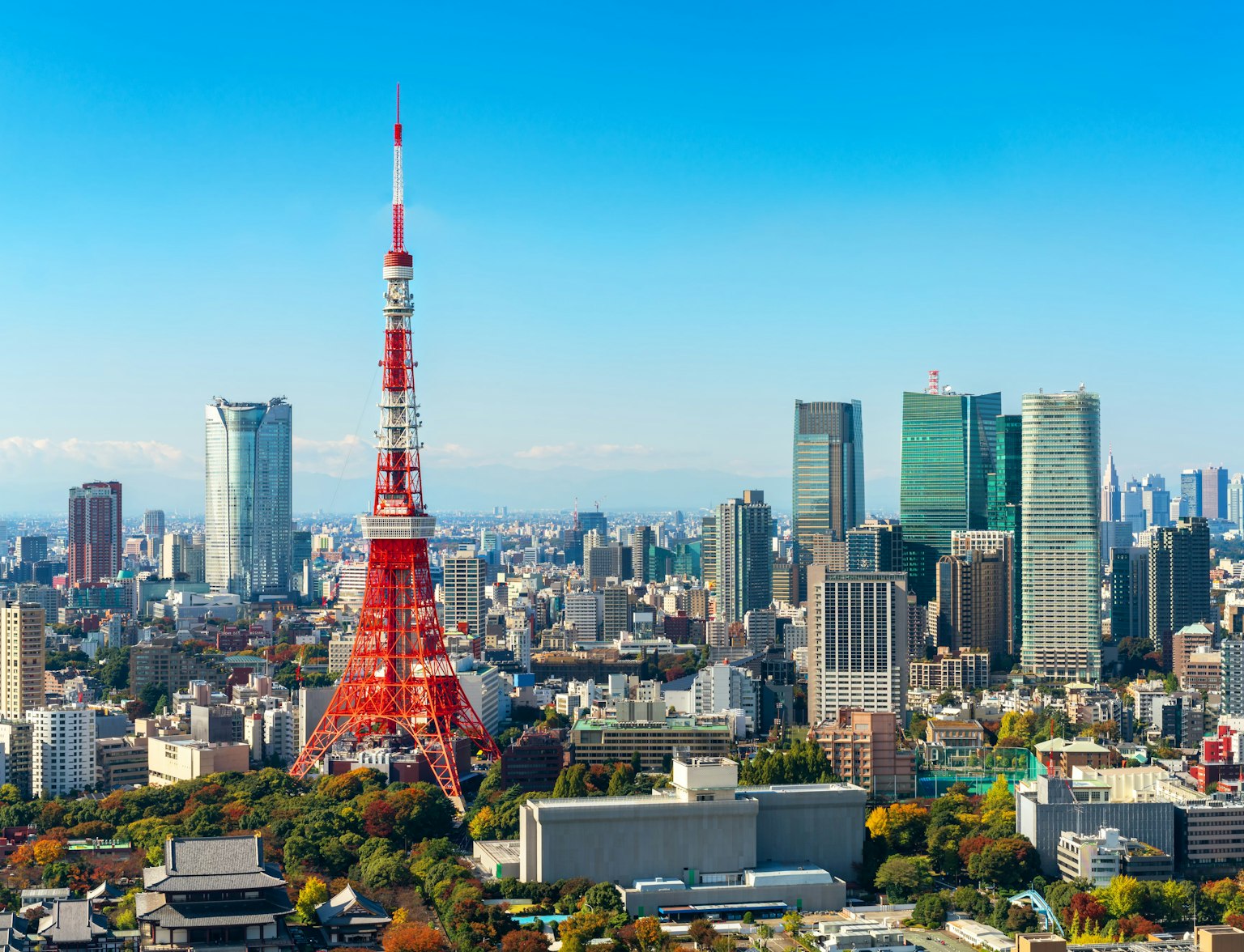
Visit Roppongi with a chartered vehicle.
Odaiba
Odaiba, a large artificial island in Tokyo Bay, symbolizes Japan's futuristic vision and innovation. It is a popular destination for locals and tourists, known for its unique attractions, modern shopping complexes, and stunning waterfront views.
Whether you're a technology enthusiast, a shopaholic, or a nature lover, Odaiba has something to offer everyone.
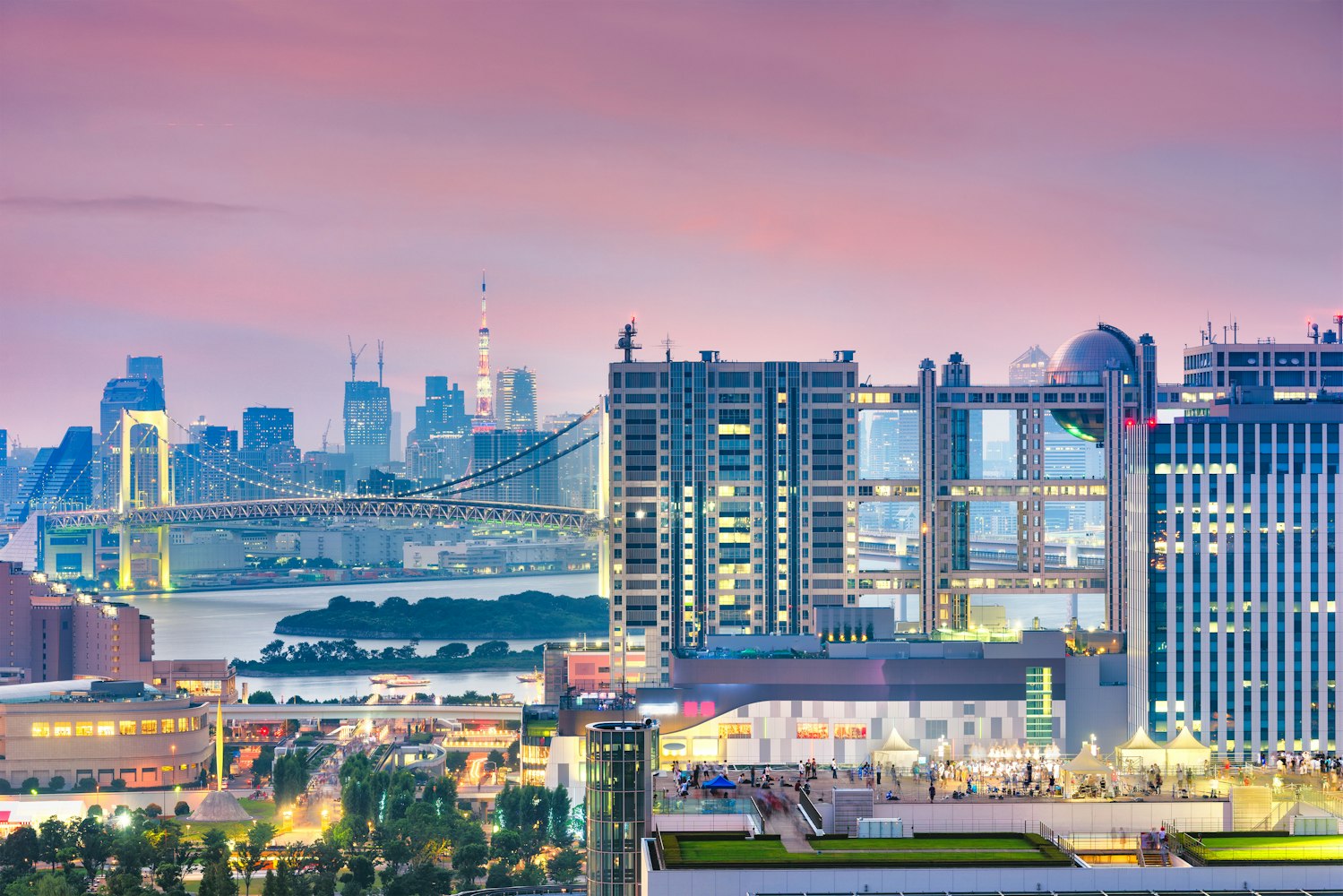
Best Places to Stay in Odaiba
When it comes to accommodations, Odaiba offers a variety of options ranging from luxury hotels to budget-friendly stays. The Grand Nikko Tokyo Daiba is a top-rated hotel known for its excellent service and comfortable rooms.
For a more budget-friendly option, the Hotel Villa Fontaine Grand Tokyo-Ariake and the Sotetsu Grand Fresa Tokyo-Bay Ariake are highly reviewed by guests. If you're looking for accommodations that provide easy access to attractions and shopping centers, consider staying at the Far East Village Hotel Ariake Tokyo or the Hilton Tokyo Odaiba.
These hotels are centrally located and offer great views of the city skyline. Despite some opinions that Odaiba may not be suitable for extended stays, many guests enjoy this futuristic island's unique charm and convenience.
Modern Attractions and Shopping
Odaiba is home to some of Tokyo's most modern attractions. A standout attraction is teamLab Borderless, a digital art museum with interactive light installations that deliver an immersive experience. Another notable attraction is Palette Town, which features a giant Ferris wheel offering panoramic views of the city, a car theme park, and a large shopping mall.
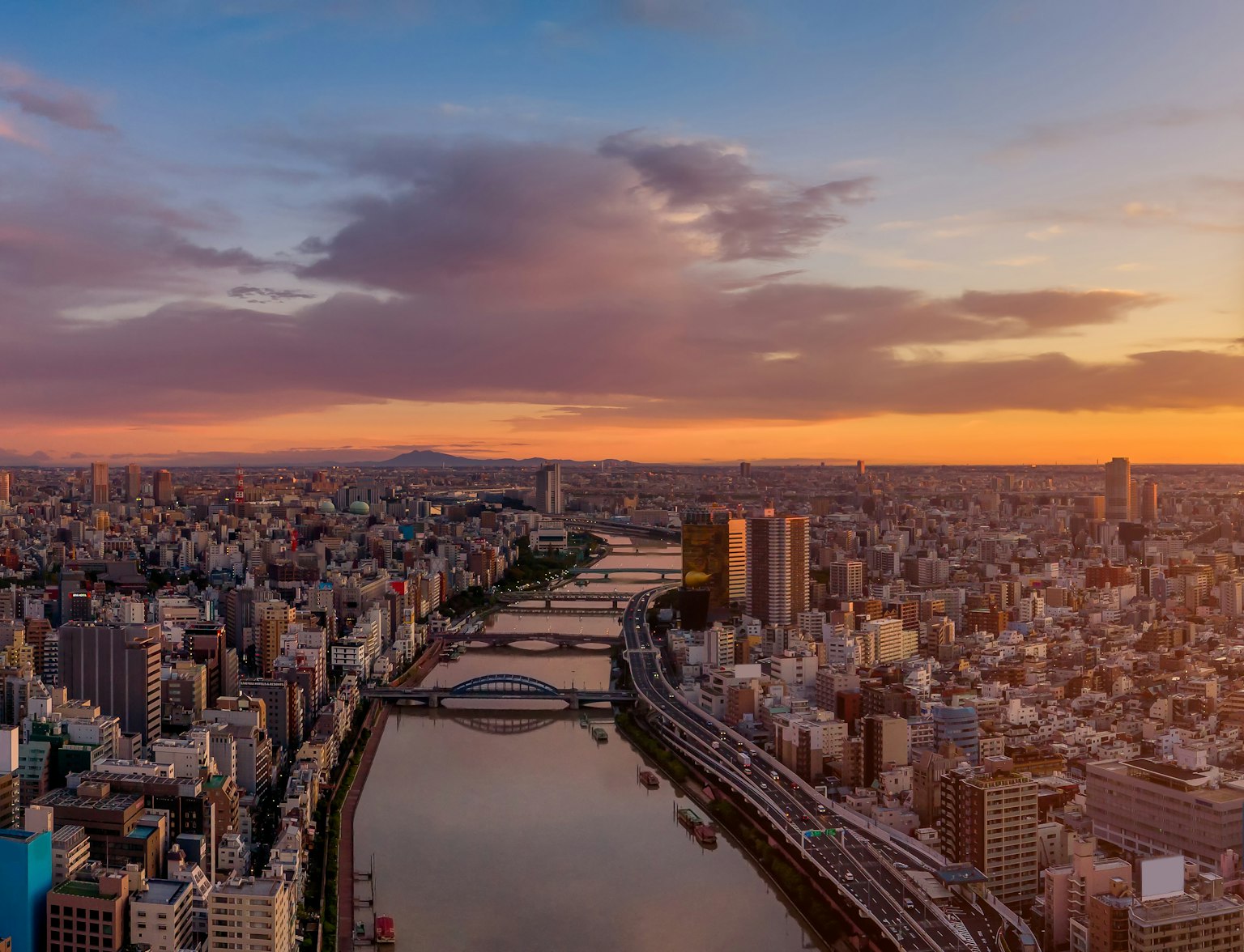
Enjoy the cruise going under the gorgeous Rainbow Bridge and gaze at the skyscrapers of Tokyo!
Shopping enthusiasts will find plenty to explore in Odaiba. The area boasts several large shopping complexes, such as DiverCity Tokyo Plaza, Aqua City Odaiba, and VenusFort.
These malls offer various shops, from high-end brands to local boutiques and dining options.
Accommodation and Accessibility
Chiyoda City and the Tokyo Station area offer many accommodations, from luxury hotels to budget-friendly guesthouses. Here are some options:
Luxury Hotels: Consider the Tokyo Station Hotel or the Mitsui Garden Hotel for a luxurious stay. The Tokyo Station Hotel is a historic landmark offering elegant rooms and top-notch service, while the Mitsui Garden Hotel provides modern amenities and stunning city views.
Budget-Friendly Options: If you're traveling on a budget, consider staying at a traditional Japanese inn, such as a ryokan, or a budget-friendly hotel like the Remm Akihabara Hotel. These accommodations offer comfort and convenience without breaking the bank.
Accessibility: Tokyo Station is one of the most accessible stations in Tokyo, with many elevators and escalators making it easy to navigate. Chiyoda City is also wheelchair-friendly, with numerous ramps and accessible sidewalks, ensuring a comfortable stay for all visitors.
Before You Visit Tokyo
Before visiting Tokyo, it's essential to research and plan. Here are some things to consider:
When to Visit: Tokyo is a great destination year-round, but the ideal times to visit are spring (March to May) and autumn (September to November). These seasons bring pleasant weather and stunning scenery, like cherry blossoms in spring and colorful foliage in autumn.
How to Get There: Tokyo is served by two major airports, Narita International Airport and Haneda Airport. Both airports offer numerous international and domestic flights, making it easy to reach Tokyo from anywhere in the world. Additionally, you can take a train or bus from other parts of Japan, with the Shinkansen (bullet train) being a popular and efficient option.
Where to Stay: Tokyo has many neighborhoods, each unique. Consider staying in Shinjuku, Shibuya, or the Tokyo Station area for easy access to public transportation and major attractions. These areas offer a range of accommodations, from luxury hotels to budget-friendly options.
What to Do: Tokyo boasts many attractions, from historic temples and serene gardens to modern museums and thrilling theme parks. To make the most of your visit, consider purchasing a Tokyo Metro Pass for unlimited subway rides, allowing you to explore the city easily.
Getting Around Tokyo
Getting around Tokyo can be intimidating, but the city has a comprehensive public transportation system. Here are some tips:
Subway: Tokyo's subway system is one of the most efficient in the world. For easy travel, consider purchasing a prepaid IC card, such as a Suica or Pasmo card. These cards are accepted on trains, buses, shops, and vending machines.
Train: Tokyo has an extensive train network, including the JR Yamanote Line, which connects many major stations and popular areas. The JR Tokyo Station is a central hub, making exploring Tokyo and beyond convenient.
Bus: Tokyo's bus network is extensive but can only be seen by tourists. Consider using a bus route map or asking for help at a bus stop. Buses are a great way to reach areas not covered by the subway or train lines.
Taxi: Taxi are widely available but can be expensive. Consider using a ride-hailing app or asking your hotel for assistance. Taxis are a convenient option for late-night travel or when carrying heavy luggage.
Your Tokyo Neighborhood Awaits
Having explored the top 8 areas to stay in Tokyo, it's clear that each neighborhood offers its unique appeal. From bustling streets filled with culinary delights to serene spots boasting lush greenery, your ideal Tokyo experience is dictated by your chosen base.
The vibrant city of Tokyo is a treasure trove of experiences waiting to be discovered. So, whether you're an avid explorer, a peace-seeker, or a nightlife lover, a corner of Tokyo is calling your name.
